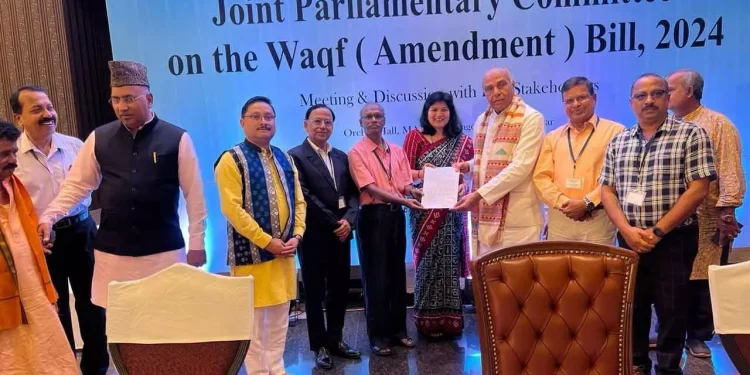New Delhi:The Joint Parliamentary Committee (JPC) on the Waqf Amendment Bill, 2024, has submitted its final report to the Lok Sabha Speaker, recommending significant reforms to the management of Waqf properties. Committee member Tejasvi Surya termed the proposed amendments as a “historic step” toward improving transparency, accountability, and professionalism in Waqf administration.
Addressing the media, Surya highlighted longstanding issues of mismanagement, encroachments, and alleged misuse of Waqf provisions. “Several cases have emerged where even government, private, and agricultural lands were claimed as Waqf properties. These amendments aim to prevent such abuses while ensuring better governance,” he stated.
The Bill proposes renaming the Waqf Act, 1995, as the Unified Waqf Management, Empowerment, Efficiency, and Development Act, 1995. Key provisions include:
- Clarified definitions of Waqf properties
- Ensuring inheritance rights
- Abolition of the controversial ‘Waqf by user’ provision
- Strengthened survey, registration, and digital management systems
Additionally, the amendments propose restructuring Waqf Boards by including representation for Muslim women and non-Muslims. Separate boards for Boharas and Aghakhanis will also be introduced. The Bill further reforms the tribunal system, allowing appeals to High Courts and reducing the financial burden on mutawallis (Waqf administrators).
Tejasvi Surya emphasized that these changes would “empower the Muslim community while ensuring that Waqf properties are managed efficiently and without misuse.” He expressed confidence that once enacted by the Narendra Modi-led government, the legislation would mark a major improvement in Waqf administration across India.














